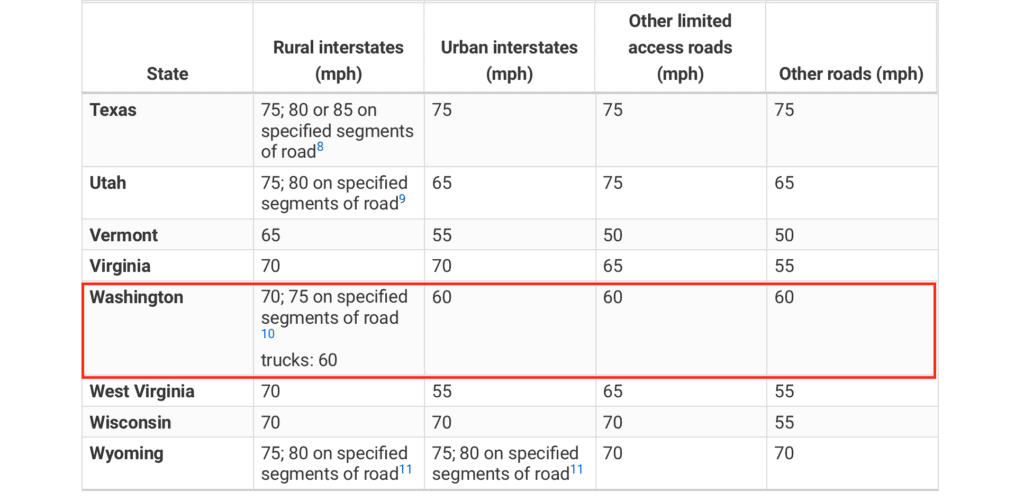Michigan’s 75 MPH speed limit has made its highways more dangerous, according to a new study.
The state raised speed limits by 5 mph – from 70 mph to 75 mph – on many of its rural highways in 2017.
In 2018, crashes on those roads went up an astonishingly 17.2 percent, compared to just 3.4 percent statewide. Other states have also seen more injuries and deaths in places where speed limits have increased.
Since the nationwide 55-mph speed limit was abolished in 1995, 41 states have increased their speed limits to at least 70 mph on highways. Seven states allow vehicles to travel at 80-mph on some highways, and one stretch of Texas tollway has a posted speed of 85 mph.
Six states have increased their speed limits since 2013. Laws by state – IIHS.

While the answer may seem obvious, it is worth looking at why crashes increase with raised speed limits.
The influence of speed limit on crash rate
Drivers in the U.S. seem to have a tricky relationship with speed limit signs. Rather than read the speed limit as the maximum safe speed, many see it as the minimum speed.
If a highway speed is raised, then by default those driving on that highway will be going faster. For drivers who are used to the lower speed limit, this poses the problem of having to increase their regular speed.
Insurance Institute for Highway Safety (IIHS) spokesperson Russ Rader said, “When speed limits go up deaths go up, and when speed limits go down deaths go down. It seems as though more states are raising speed limits despite the clear evidence that shows what the safety downside is. Higher speeds mean more crashes and more severe ones.”
When speed limits go up deaths go up, and when speed limits go down deaths go down.
An IIHS study concluded that nearly 37,000 additional people have died in traffic incidents over the last 25 years because of rising speed limits on our nation’s roadways.
Common sense tells us that a vehicle traveling at a higher speed is going to be harder to control when confronted with a hazard. Physics tells us that vehicle will take longer to stop.
And, if distracted, a driver has a shorter time frame and distance in which to respond to any driving situation.
I am an advocate of keeping speed limits more conservative and no higher than 70 mph. For 33 years I have worked as a personal injury lawyer. I have been a witness to the incredible damage done by cars at even 50 mph.
I have seen many lives lost, and many lives changed by injuries because of speeding vehicles.
And for what reason? From a mathematical point, driving 70 mph instead of 65 mph saves a driver at best 6 and a half minutes on a 100-mile trip.
Is traveling at a higher and more dangerous speed worth it? After a crash, you might not think it is.
Helpful Reading: Speed Limit in Washington State


